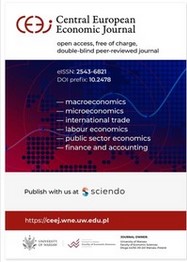Determinants of corporate R&D expenditures: the role of taxes
Determinants of corporate R&D expenditures: the role of taxes
Author(s): Dorota Wasiluk, Anna Białek-JaworskaSubject(s): Economic policy, Economic development, Fiscal Politics / Budgeting
Published by: Wydawnictwa Uniwersytetu Warszawskiego
Keywords: R&D; tax incentives; patents; Germany; France;
Summary/Abstract: The paper aims to find the relationship between corporate expenditures on R&D and tax burdens comparing German with French R&D incentives. We use the OLS method for the financial and patent cross-sectional data retrieved from the Amadeus database. The results confirm that firms with higher tax spread (the difference between the nominal and effective tax rates) spend less on R&D. These are in line with findings of a positive relationship between corporate R&D investment and tax burdens. Thus, firms that invest in R&D more pay higher taxes. However, they are less profitable as the return on R&D investment is visible only in the long run. German corporate expenditures on R&D are significantly sensitive to internal funds (proxied by cash flow) and depend on debt, contrary to French. The results indicate that the French firm’s age (a phase of life cycle) has a significant impact on spending on R&D compared to German. Whereas in both countries, corporate expenditures on R&D are sensitive to the number of obtained patents. The capability of reducing the level of tax burdens below the nominal tax rate in the case of older German firms stimulates them to increase their R&D expenditures. However, German firms can decrease tax due to the use of R&D grants (revenues without taxation) in the absence of other tax incentives related to R&D.
Journal: Central European Economic Journal
- Issue Year: 7/2020
- Issue No: 54
- Page Range: 110-126
- Page Count: 17
- Language: English

